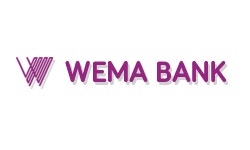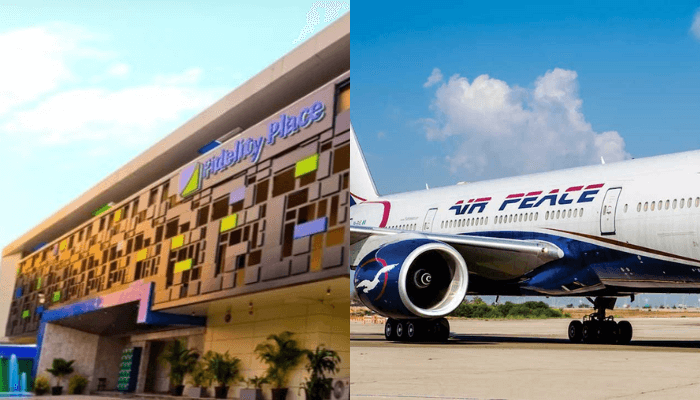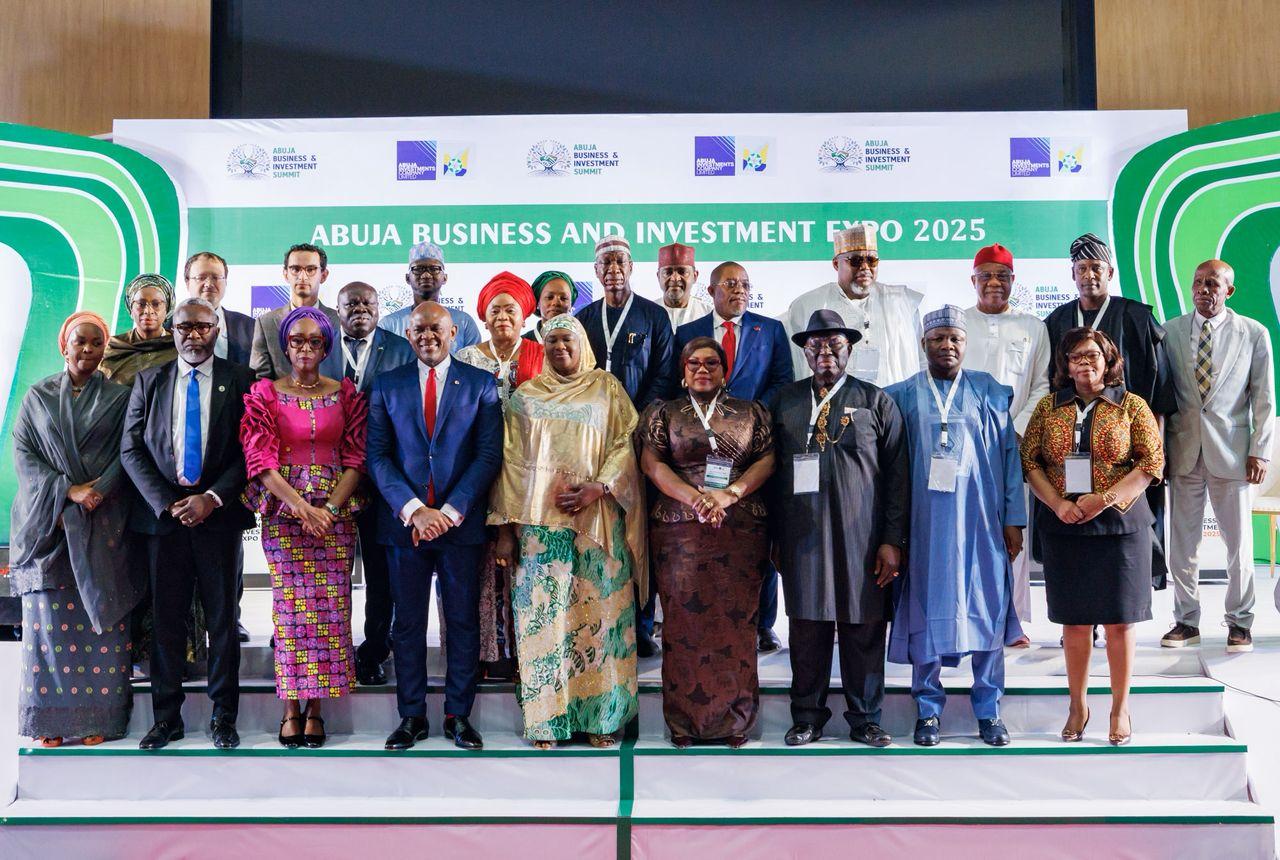Business
Messy Wema! How Incompetence, Porous Cybersecurity Skills Are Depleting Bank’s Funds

Wema Bank Plc has reportedly entangled itself in a financial mess, owing to porous cybersecurity skills, running foul of certain Central Bank of Nigeria monetary laws, and coughing out a total of N61.350 million in penalties in one year.
According to reports, this was revealed in the bank’s full-year 2023 financial statement, which showed that the lender contravened a cybersecurity law, a section of the Bank and Other Financial Institutions Act (BOFIA) 2020, the Central Bank of Nigeria (CBN) circulars on Know Your Customers, among others.
On the cybersecurity framework contravention, Wema Bank received a fine of N2 million, but the lender was fined N20 million for breaching Section 19(3A) of BOFIA, 2020.
Also, Wema Bank was made to pay N17.45 million for violating the CBN circulars on KYC.
The bank further paid a fine of N10 million for the late rendition of final returns. The CBN circulars on KYC were targeted at reducing money laundering and other forms of financial crimes.
“There is no doubt that having sufficient information about your customer and making use of that information is the most effective weapon against being used to launder the proceeds of crime.
In addition to minimizing the risk of being used for illicit activities, it provides protection against fraud, reputational and financial risks and enables individual financial institutions to recognize suspicious activities,” the CBN says in its KYC manual.
Similarly, the bank paid a penalty of N8 million for Risk-Based Supervision (RBS) breaches. The lender was likewise penalised for a regulatory breach on the CBN clearance, paying a fine of N2 million for the contravention.
For the late filing of its 2022 audited financial statements with the Nigerian Exchange Limited (NGX), the tier-2 lender was fined N1.9 million.
Fraud and burglary lower but still risks
Fraud and burglary are still big risks for the bank, which lost N256.387 million to them in 2023. However, this was far lower than N880.154 million lost by the bank in fraud and burglary cases in the corresponding period of 2022.
This would mean that the bank took some measures to tackle fraud and theft in 2023, said a credit risk analyst, Mr Osai Djemba.
Mr Djemba explained that the bank “must introduce artificial intelligence measures to reduce its exposure to theft to the barest minimum,” arguing that “sophisticated thieves and several criminals have infiltrated the Nigerian financial system to steal, kill and destroy.”
Complainants demand N10.8bn
Wema Bank left 9,974 complaints unresolved by December 2023. This is lower than 13,642 unresolved complaints reported in the corresponding period of 2022.
Various customers with these complaints demanded N10.843 billion from the lender over the issues.
The bank, however, refunded N11.258 billion to customers (apart from the N10.843 billion), the financial statement said.
“As a result of the initiatives stated earlier, the Bank successfully reduced the average time taken to resolve customer complaints by 60% compared to 2022, and the resolution rate increased from 93% to 98% demonstrating our commitment to improving the experience of our customers consistently and efficiently, the bank noted.
Source: News Report
Business
Maiden Flight to Heathrow Airport: Fidelity Bank Hails Air Peace

Fidelity Bank Plc has congratulated Air Peace on the successful launch of its maiden direct flight from Lagos to London Heathrow, describing the milestone as a significant achievement for Nigeria’s aviation sector and a testament to the power of indigenous partnerships.
The commendation was delivered by Dr. Nneka Onyeali-Ikpe, managing director of Fidelity Bank, during a special event held in Lagos to celebrate the airline’s expansion into the European market.
“This is not just a win for Air Peace, but a win for Nigeria,” Onyeali-Ikpe said. “It reflects the strength of home-grown businesses and the impact of strategic financial support in enabling national champions to thrive on the global stage.”
Nigeria CommunicationsWeek reports that Fidelity Bank has played a pivotal role in Air Peace’s growth, providing early financial backing and advisory services that helped the airline become the largest carrier in West Africa. The bank continues to support Air Peace through payment processing and other financial services
The launch of the London route marks a new chapter for Air Peace, which now joins a select group of African airlines operating direct flights to Heathrow.
The development is expected to boost tourism, trade, and connectivity between Nigeria and the United Kingdom.
Speaking at the event, Allen Onyema, Chairman of Air Peace, expressed gratitude to Fidelity Bank for its unwavering support and reaffirmed the airline’s commitment to excellence and service.
“This partnership has been instrumental in our journey,” Onyema said. “We are proud to fly the Nigerian flag across international skies.”
Industry stakeholders present at the event praised the collaboration between the two companies as a model for sustainable business growth and national development.
Business
Elumelu Hails Private Sector As Engine of Transformation at 2025 Abuja Investment Summit

The Group Chairman, United Bank for Africa (UBA) Plc, and Heirs Holdings Limited, Tony Elumelu, CFR has challenged African policymakers to create environments that reward enterprise and unlock the continent’s vast potential. He said this much while delivering a keynote address during the Abuja Business & Investment Summit & Expo 2025, which held at the Bola Ahmed Tinubu International Conference Centre Abuja on Wednesday, said “Predictable regulation attracts long-term investment, while inconsistency drives it away. He therefore urged governments to see private sector success as the foundation of national prosperity.
Elumelu who underscored the critical role of the private sector as the true engine of transformation, accounting for over 70% of Africa’s GDP and 80% of employment, also urged African leaders to create a sustainable environment to attract long-term investment.
Elumelu who was speaking while delivering the keynote address during the Abuja Business & Investment Summit & Expo 2025, which held at the Bola Ahmed Tinubu International Conference Centre Abuja on Wednesday, said “Predictable regulation attracts long-term investment, while inconsistency drives it away. He therefore urged governments to see private sector success as the foundation of national prosperity.
Citing his group’s transformative investments in the Federal Capital Territory, including the revitalisation of the Transcorp Hilton Abuja, the launch of the Transcorp Event Centre, and ongoing reforms in the Abuja Electricity Distribution Company (AEDC), Elumelu pointed out that these projects illustrate how purposeful private capital can power real development.
Speaking on the theme, “Empowering Sustainable Growth: Unlocking Potential in Emerging Markets”, he called for a new social contract between business and government, grounded in trust, transparency, and partnership, adding that sustainable progress requires policies that convert investor confidence into nation-building.
While advocating policy stability to champion the pivotal role of the private sector in unlocking Africa’s vast economic potential, Elumelu, who is also the Founder of the Tony Elumelu Foundation, reiterated that no nation has ever achieved sustained prosperity without a vibrant and virile private sector.
“Across Africa, the private sector contributes over 70% of our continent’s GDP and over 80% of total employment. But this is not just about numbers; it’s about influence and initiative. The private sector is reimagining what is possible on our continent,” he stated.
He noted that Africa’s transformation will be led by investing long-term in critical sectors to unlock and catalyze prosperity and opportunities for all.
“How can we expect foreign investors to invest in us, in our economies and countries, if we don’t invest in our own economies? Make your money, but please bring it and invest locally. It will be a huge disservice and act of unpatriotism to save your money in economies that already have so much,” Elumelu challenged participants during the event.
He took time to commend the Minister of the Federal Capital Territory, Nyesom Wike, and Minister of State FCT, Dr. Mahmoud Mariya, for the infrastructural drive within the FCT, emphasizing the importance of collaboration.
In her presentation, the Minister of State for the FCT, Dr. Mariya Mahmoud who expressed profound gratitude to Tony Elumelu and fellow investors for their faith in Abuja, reiterated the FCTA’s unwavering determination to intensify its infrastructural drive, ensuring the capital remains the premier investment destination in Nigeria and across the continent.
The annual ABISummit2025 serves as a critical platform to turn this ambitious vision into concrete partnerships and actionable strategies for empowering sustainable growth across Nigeria and the wider African continent.
Business
2025 Corporate Responsibility and Sustainability Week: FirstBank Unleashes Global Kindness

FirstBank, the premier bank in West Africa and a leading financial inclusion service provider, has proudly announced the commencement of its 2025 Corporate Responsibility and Sustainability (CR&S) Week, scheduled to hold from 27 October – 1 November 2025.
Now in its ninth year, the annual event is a reflection of the Bank’s commitment to community empowerment, environmental stewardship, and the advancement of the United Nations Sustainable Development Goals (SDGs).
Through the ‘Start Performing Acts of Random Kindness’ (SPARK) initiative, FirstBank continues to build on its legacy of sowing seeds of kindness, with a focus on uplifting communities and reducing environmental impact. During CR&S Week, the Bank mobilises employees across the FirstBank Group, including FirstBank Nigeria, FirstBank UK, FirstBank Gambia, FirstBank Sierra Leone, FirstBank DRC, FirstBank Guinea, FirstBank Ghana, FBNBank Senegal, First Pension, and First Nominees, to dedicate their time and resources to meaningful causes aligned with the Bank’s sustainability strategy.
Commenting on the week-long event, Acting Group Head, Marketing & Corporate Communications at FirstBank, Olayinka Ijabiyi, said, “CR&S Week is a call to action. It is about showing up for humanity, being kind to one another, and proving that even the smallest act can ripple into lasting change. FirstBank believes that kindness is a currency that never devalues, and that is why every year since 2017, staff have gone the extra mile to give back to the communities through its SPARK initiative, while also encouraging people to perform acts of random kindness.”
The Bank plans to plant at least 20,000 trees within the week in partnership with the Nigeria Conservation Foundation (NCF), in the final phase of its support for the Nigeria’s 2060 decarbonisation agenda. This effort builds on the Bank’s pledge to plant 50,000 trees by 2025, with 31,000 trees successfully planted over the past two years.
Additionally, in line with FirstBank’s commitment to achieving the United Nations Sustainable Development Goal 5 (SDG) of women empowerment, the Bank will collaborate with Borno and Katsina States to raise and provide medical interventions (including surgeries and post-care kits) for women living with Vesicovaginal Fistula (VVF).
Throughout the week, FirstBank staff will be inspired to share messages of kindness, fostering a culture of compassion, civility, and empathy across the Bank. The programme will feature themed webinars centered on the SPARK initiative, as well as school engagements designed to instill the values of generosity and social responsibility in younger generations. The week will culminate in visits to orphanage homes, internally displaced persons (IDP) camps, and charitable organisations across Nigeria, sub-Saharan Africa, and the UK, demonstrating kindness and empowering those at the bottom of the pyramid.
These initiatives epitomise FirstBank’s care for the environment and humanity, aligning with the Bank’s sustainability strategic pillars and support for the Green Recovery Nigeria
Since the first edition in 2017, FirstBank’s CR&S Week has spotlighted the Bank’s corporate citizenship interventions driving positive social impact, sustainability, and community engagement. Over the years, it has evolved into a platform that mobilises stakeholders and non-customers alike across its global network to champion causes that uplift lives, protect the environment, and promote inclusive development. FirstBank is encouraging and inspiring individuals to go beyond their everyday routines and perform acts of random kindness.






